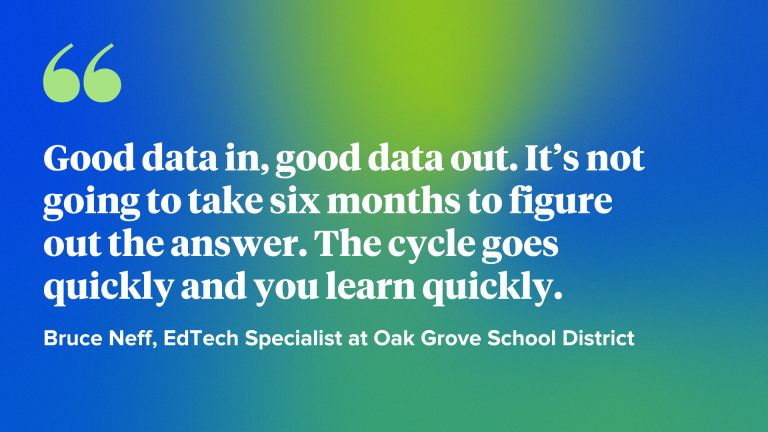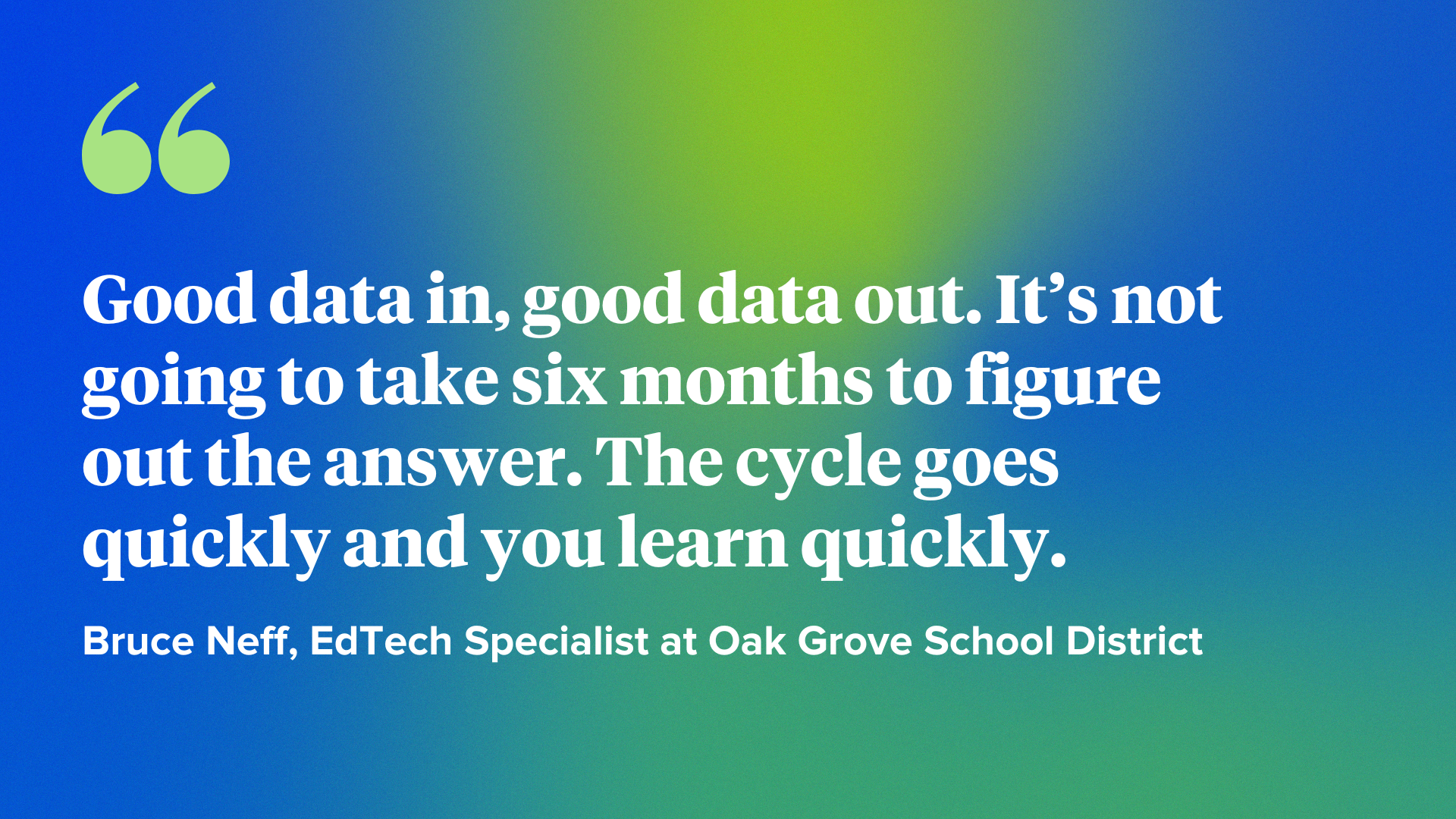
Every day, district administrators research, vet, budget for, and procure digital learning resources for their students and teachers. Over the past few years, as education technology use has become more pervasive, answering the question of what’s working has become critical.
A Quick Checklist School Leaders Can Take with Them to Budget Conversations
For leaders currently in or finalizing budget conversations, consider gathering the following evidence on edtech tools to support your decisions.
It’s important to note that this list isn’t all-inclusive and can be personalized as you see fit. If you can’t gather all of this information, that’s okay. It’s better to start small and scale than to not consider any evidence.
Cost-effectiveness Analysis
- Compile ROI data for current edtech tools
- Compare costs vs. student outcomes for each tool
- Identify tools with the best value proposition
Teacher Training & Professional Development
- Allocate budget for ongoing teacher training
- Plan for initial and follow-up training sessions
- Consider peer mentoring or train-the-trainer programs
- Ask for and respond to teacher, student, and community feedback on tools
Equity and Accessibility
- Ensure tools meet accessibility standards
- Budget for assistive technologies
- Plan for equitable device distribution
Data Privacy and Security
- Review privacy policies of all tools
- Budget for necessary security measures
- Plan for staff training on data protection
System Integration
- Assess compatibility with existing infrastructure (SIS, LMS, etc.)
- Budget for any necessary integration work
- Consider interoperability standards
Long-term Sustainability
- Factor in ongoing maintenance costs (free tools aren’t always free when you consider the ongoing cost of maintaining & scaling them)
- Plan for future updates or replacements
- Consider scalability for growing student populations
Personalized Learning
- Identify tools that support differentiation
- Plan for data analysis to inform personalization
Parent and Community Engagement
- Allocate funds for parent communication tools
- Plan for community outreach and education
- Consider translation services if needed
Gathering this type of evidence makes all the difference when it comes to making informed budget decisions that you know will elevate your students. If this process is overwhelming, we understand and are here to help.
Oak Grove School District, a district like yours, wanted to add more evidence to its decisions. So, it brought in LearnPlatform to help streamline the process. Let's see how they did it.
Oak Grove School District & School City of Mishawaka: Building EdTech Momentum with Rapid Cycle Evaluation
During a recent webinar, K-12 administrators Bruce Neff, EdTech Specialist at Oak Grove School District in California, and Wade Buchs, Curriculum Integration Specialist at School City of Mishawaka in Indiana, discussed how they use evidence to inform, implement, and improve their edtech decisions and budgets.
The panelists shared their experiences in edtech, including insights on how using an edtech effectiveness system has impacted their work. Buchs regularly supports and reviews teachers' use of curriculum products and other edtech and digs into student interactions with various tools.
One rapid-cycle evaluation (RCE) revealed that the fidelity of edtech usage did not meet expectations, leading Buchs’ team to dig even deeper with more RCEs and questions. Subsequent analyses will help the district correlate usage with outcomes, pushing them to continue paying for and implementing products that positively impact students and teachers.
“LearnPlatform’s IMPACT™ tool helps us dive into research and see what is making a difference and what is not. LearnPlatform has been housing all of our data and rapid-cycle evaluations – we’re able to see consistencies not just among cohorts but among grade levels for online tools and edtech,” Buchs said.
Neff’s experience, on the other hand, started with a focus on student data privacy. He later built on his organization’s use of LearnPlatform. He saw the value of rapid-cycle evaluation for his district’s edtech tools.
His team’s first analysis looked at two high-value products: a district-wide purchase and a site-based purchase. The RCE revealed lower fidelity of usage than expected for the district-supported tool, which caused Neff’s team to take action and pull together evidence to present to key stakeholders as they discussed budgets.
“I had a big ‘aha’ moment. The students weren’t using the tool at the required moments, which is something I can bring up in meetings at the district level,” Neff said.
According to Neff, this is the first time he’s been able to share research-backed data about a product's effectiveness with other key stakeholders, like those making budget decisions. Before implementing an edtech effectiveness system, Neff said that evaluations of edtech tools were primarily done by word of mouth, focusing on opinion rather than data. The evidence gathered with rapid-cycle evaluations is specific to his district’s needs and can be paired with qualitative teacher feedback.
Both Buchs and Neff said their backgrounds in mathematics allow them to navigate data but that it is often challenging to compile and organize it into something usable. Finding a way to organize and take action with data allows district leaders to dig deeper and determine how it works for their local contexts.
“Good data in, good data out. It’s not going to take six months to figure out the answer. The cycle goes quickly, and you learn quickly,” Neff said.
The leaders said they’ve gained confidence in running rapid edtech evaluations, presenting evidence to key stakeholders, and making informed decisions about their districts.
Watch the webinar to learn more about Buchs and Neff’s story.
Reach out to learn more about how LearnPlatform by Instructure can help you gather evidence.


